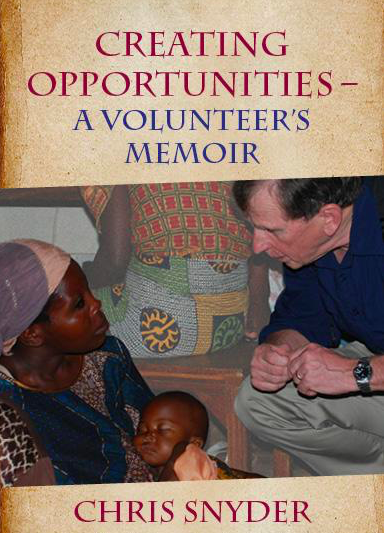- Home
- About Us
- The Team / Contact Us
- Books and Resources
- Privacy Policy
- Nonprofit Employer of Choice Award

"Never doubt that a small group of thoughtful, committed citizens can change the world; indeed, it's the only thing that ever has." - Margaret Mead
Much of what I have done in my volunteer life has involved being on a board or committee. In fact, I don't even want to try to estimate how many boards and committees I have been on. It seems I gravitate toward this type of commitment, while others stay far away from it. In my experience, people working together with a common objective but different skill sets can, with effective leadership, collectively affect much more than one person working on their own. As a result, being part of a "group" will have more credibility than a sole operator, particularly if it is with an organization with a well-known and respected presence.
You will note that I use the terms boards and committees interchangeably. There are many similarities between these two entities, however, there are also some distinct legal and operational differences. For example, if the organization is incorporated and able to issue charitable tax receipts, the operational body is called a board.
There are many types of boards. Some are policy-making boards (i.e. being on the board of a hospital). Usually you do not become involved in operational matters. Other boards may be smaller, have less money and often become involved in day-to-day operations. I have been involved more with the latter type of board and enjoy them much more. There are also what I will call "hybrid" boards, generally in small organizations with some paid staff and the rest volunteers. In hybrids, it is not uncommon for the staff and board members to become confused as to who does what, and who answers to whom.
There are many kinds of committees. Some have their own set of rules and terms of reference. They are usually long-term, with some "ad hoc" committees created for a specific short-term period. Committees can be of varying size, however, I have found that after a certain size, they can lose their effectiveness and you spend a large part of your time dealing with group dynamics. It becomes easy to lose sight of why you are there in the first place.
Why be on a board?
There are many reasons why you might want to become a member of a nonprofit board. They include:
While I did not join the board of the Trudeau Centre for Peace, Justice and Conflict Studies at the Munk Centre at the University of Toronto for the perks, I have found that involvement has given me a number of benefits. I was originally asked to join this board by Dr. John English, a noted historian (official biographer of Pierre Trudeau and head of the Bill Graham Centre at the University of Toronto). I believe I was asked to join, in part because of my Rotary involvement but more specifically because of my hands-on international experience dealing with issues in the developing world.
This board has taken me into an academic world I knew little about. I have connected with some amazingly successful people from the business, academic and international world. To have conversations about world events and the shape and content of programs with university presidents, retired and future cabinet ministers, noted scientists and explorers, renowned journalists, film makers, accomplished lawyers and international business people is mind-expanding, challenging and inspiring!
I sometimes ask myself "how did I get here?" and "what can I add?" At first, I was nervous to speak lest I appear ignorant, however, I always come home on a high having felt I have made a small contribution to the discussion.
Sometimes people join a committee because it relates to their business. Wise employers will want their employees to be involved in community activity, for both public relations reasons and because it is important to participate in the community that does business with you. Your employees can learn new skills to help with their business responsibilities (public speaking, organizing, cross-fertilization of ideas with people from different backgrounds and interests) to say nothing of the leadership skills they can learn. This has certainly been the case with me. But I would add, that you should not join for business reasons alone. Join because of the cause. Do a good job, and business will follow.
 This excerpt is from "Creating Opportunities - A Volunteer's Memoir" .
This excerpt is from "Creating Opportunities - A Volunteer's Memoir" .
Chris Snyder, CFP, RFP is one of the early pioneers in the Canadian financial planning world. Chris understands that while much of life revolves around money; life is about much more than that. He has been a founder and/or board member of many charitable organizations including Project Mainstream in India, Street Kids International and Bakong Technical College in Cambodia, the Canadian Landmine Foundation, Toronto's Youth Employment Services, the Nature Conservancy of Canada(Ont) and Alpine Ontario. A long-time member of the Rotary Club of Toronto, he leads groups of Rotarians to the developing world to build schools and lead other valuable community projects. Most recently he has been working on First Nations initiatives and is the founding chair of HIP (Honouring Indigenous Peoples). In 2018, Chris was awarded the Sovereign’s Medal for Volunteers in recognition of his many contributions to volunteering in various communities. He can be reached at snyder@eccgroup.ca